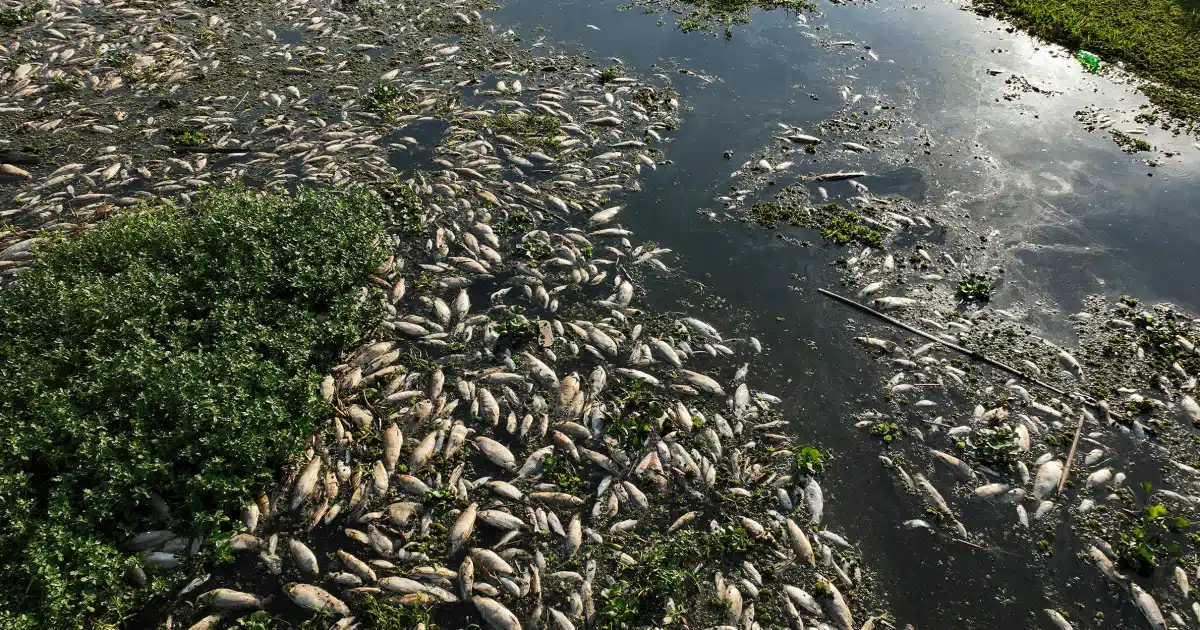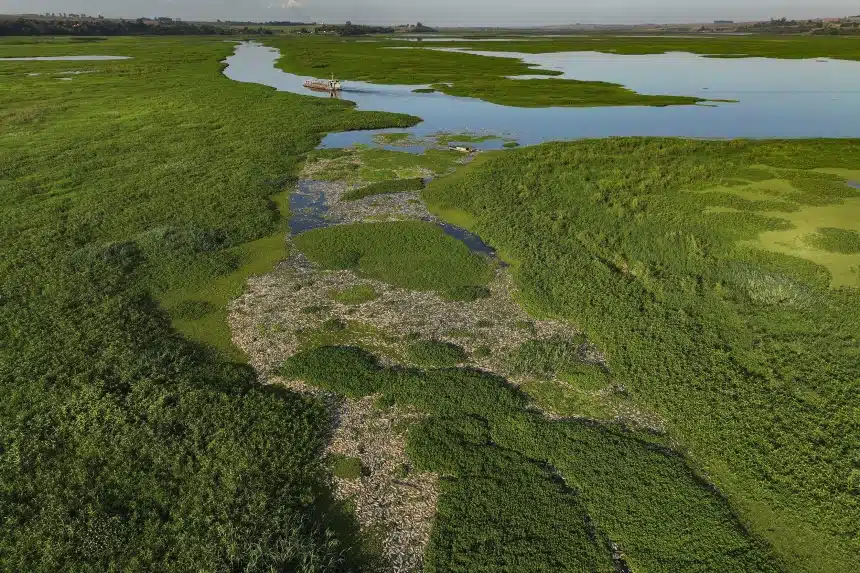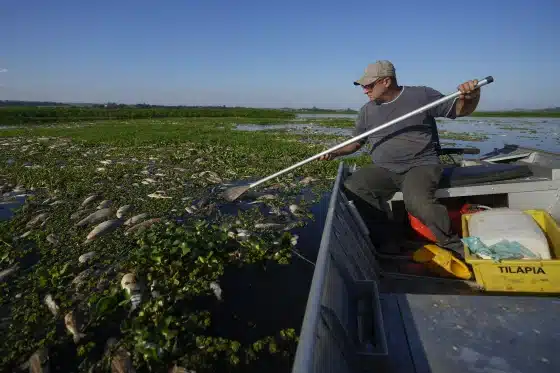
Tons of dead fish fill river in Brazil after waste dumping allegations
Environmental authorities and prosecutors in Sao Paulo state, Brazil, reported the death of numerous fish weighing several tons along a major river. This incident was attributed to suspected illegal discharge of industrial waste from a sugar and ethanol plant.
According to a statement issued by Sao Paulo’s prosecutors, an initial assessment suggests that approximately 10 to 20 tons of fish perished in the Piracicaba River in southeastern Brazil.
The initial investigation points to an “irregular discharge of wastewater” from Estiva’s Sao Jose plant in the community of Rio das Pedras and it reached a stream that flows into the Piracicaba River, prosecutors said.
The company overseeing the plant, Estiva, did not provide a response to multiple requests for comment made by the Associated Press.

“It will take years for the environment to recover,” said Adriano Queiroz, director of licensing at Sao Paulo’s environmental agency, in a video call. Due to the number of fish killed and the variety of species affected, the impact on biodiversity is significant, he added.
The Piracicaba River flows through a conservation area called Tanqua, often referred to as Sao Paulo’s version of the Pantanal, known for its rich biodiversity and stunning natural landscapes. With a basin spanning 4,838 square miles, it is a significant area for ecological preservation and wildlife habitat.
On Wednesday, a carpet of floating fish corpses covered the waterway, littering stretches of the river.
“This sad environmental disaster has moved everyone because of the seriousness and extent of the impacts,” prosecutors said, adding that the situation of the fishermen and the local community is also “very worrying.”
The prosecutors have formally asked for a comprehensive investigation into the state of the water conditions and are presently awaiting additional technical details before deciding on the subsequent actions concerning potential civil and criminal responsibilities.
Police are investigating to determine if an environmental crime was committed, Sao Paulo’s secretary for public security said in a statement.
The company risks a hefty fine.
The environmental agency of the state of Sao Paulo, referred to as CETESB in Portuguese, was initially alerted to the widespread fish mortality and pungent smell coming from the river on July 7th.

That same day, the agency asked the Salto Grande hydroelectric power plant to increase the amount of water released to dilute the pollution.
As of July 9, the data indicated a rise in the levels of dissolved oxygen, creating a more conducive environment for the survival of the fish, as reported by CETESB.
But reports emerged of another mass die-off in Tanqua, about 37 miles from the city of Piracicaba where news of dead fish first emerged.
The Piracicaba River flows through a historically significant area in the state of Sao Paulo, serving as a vital transportation route for small steamers and a key water source for the region’s sugar cane and coffee plantations. This information is sourced from official records of the national statistics agency.
A severe drought in the Amazon also killed huge quantities of fish last year.


